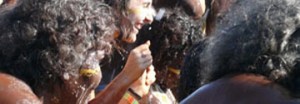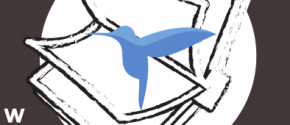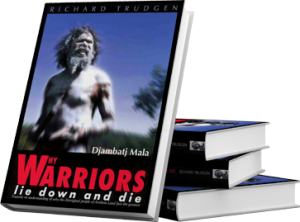I have recently had the privilege of spending significant amounts of time participating in some Yolngu ceremonies going on in Galiwin’ku. This is a rare experience of being in a completely Yolngu domain (ie a space that is Yolngu controlled, completely understood by Yolngu, and completely foreign to me). Such an experience is invaluable to remind me of what completely cultural beings we are. That Yolngu ceremonial space (which might be comparable to Western churches, courts, parliaments etc), is a space that Yolngu have been experiencing all their lives. The knowledge about how it works is picked up by imitation of what is going on around them, and from information conveyed by their parents, family, peers and teachers. This collective experience over the years creates a space where people are comfortable and confident. They know what is going on, who is in charge, who is making decisions, what the natural progression of events will be, and most importantly they have access to the reasons why each event is significant or necessary. On the other hand, this is an environment unlike anything that I have experienced before. Symbols are different and therefore do not convey meaning to me without receiving specific and extended explanation. Most actions going on I do not know the meaning or significance of, and do not have the cultural framework or tools to work them out for myself. It is hard to tell who is playing what roles and I have no way of knowing what will happen next.
Normally we all take for granted the cultural spaces that we move around in, where we understand what is going on and why. It is therefore hard to imagine that someone from another culture stepping into our cultural environment could not see what is happening and why. It is thus also hard to recognise that their lack of knowledge and experience in our cultural space severely limits their ability to operate to their full human capacity, to make their own choices, or express themselves. In a foreign cultural space we cannot feel in control until we come to understand that space.
Often the people helping me to navigate the new cultural environment of Yolngu ceremony, underestimate just how ignorant I am. I sometimes feel like they need to be reminded that I am a Dhunga Balanda (one who does not know, aka stupid ‘white fella’). Often what they do convey seems like surface information, yet they seem to expect that it is sufficient – they might tell me how to move or where to go, but often this does not convey what the underlying story is about, or what is really going on. Such information might enable me to participate like a child in the ceremony, but it would never get me to a place where I would be capable of running one myself, or playing a significant role.
We in the Dominant Culture can forget that schools, hospitals, clinics, councils and boards, are foreign environments to most Yolngu. We too often only give people surface stories – what they need to do or where they need to go – but leave people feeling confused about the underlying story of what is going on in these places, knowledge that is taken for granted knowledge within ones own culture. If we do not acknowledge this we cannot create a safe space where people can ask their questions about how Dominant Culture systems operate. If we do recognise this, we might begin to take the time to listen and discover how to answer their questions deeply. If we do not understand this we might not see that we can’t expect them to get up and run the place, while they still need to know why.. why?…Why are we doing that?.
By reflecting on my experience in Yolngu spaces I have come to realise that this provides a picture of one of the limit conditions facing Indigenous Australian, one of the limitations that underlie their disadvantage. (We discussed limit conditions as a way of understanding Indigenous ‘poverty’ in the previous article.) Many Indigenous people (particularly those from remote areas) are limited in functioning in their full human capacity in ‘westernised’ Cultural spaces. Unlike my temporary experiences in Yolngu spaces, their involvement in the Dominant Cultures space is permanent. They are daily experiencing similar (or worse) limitations in their capacity to what I experienced in participating in Yolngu ceremony. The strangeness of the Dominant Culture is a daily limitation in their ability to make informed choices, and participate on an equal footing with Dominant culture English speaking personnel, who have been learning how to succeed in Dominant Culture schools, councils, clinics, boards since they were babes. The very normal fact that Indigenous people are new to ‘western’ culture, and that the Dominant Culture often fails to understand that they need more than surface information, becomes possibly the most significant cause of their disadvantage and a major limitation to their success in life.





S McLean •
Thank you for these insights. I work as a medical linguist, helping medical specialists from other cultures become part of our health system. Much of the work is acculturation and understanding of cultures within Australia. Many of these doctors will work at some stage with Indigenous communities. Feeling ‘estranged’ is a very powerful emotion and the person feels at a disadvantage, as you so rightly point out. Listening, explaining, are part of giving more than surface information. These are the aspects that take time in patient/doctor communication and as you mention, are important in engendering empowerment.
Mark Proud •
Very profound comment about the surface answers to Aboriginal questions – it seems that we don’t even understand what it is that we are missing in the communcation between cultures.And becuse of the pace of the dominant culture, we don’t slow down enough to listen to the underlying question. Thank you for the thoughtful article.
Predatory systems maintaining Indigenous disadvantage: Some examples •
[…] discussed in the previous article Cultural Spaces (An example of the Limit Conditions the people face), one of the limit conditions that create Indigenous “poverty” is that Aboriginal people […]